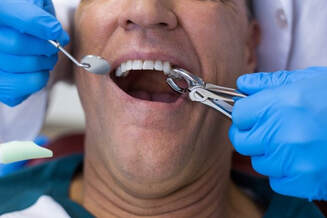James Frizzell, DDS, has worked as a dentist in Niagara Falls, Ontario, since 1993. In addition to his dentistry work in Niagara, James Frizzell, DDS, spent eight years with the Canadian Armed Forces. He provides patients with an array of restorative and cosmetic dental services, including tooth extractions.
An individual may need to have a tooth pulled, a procedure known as a tooth extraction, for a number of reasons. Excessive damage, to the point that the tooth cannot be repaired, is the most common reason for needing a tooth extraction. Tooth decay and blunt force trauma are examples of incidents that can irreparably damage one or more teeth. With that said, a dental professional may recommend a tooth extraction as a means of resolving several matters related to oral health.
Mouth crowding, for example, may be addressed via tooth extraction, especially if a dentist is preparing the mouth for othodontia. Tooth decay that reaches the pulp of a tooth is another scenario in which a dentist would recommend the immediate removal of the tooth. In some cases, a tooth may be at elevated risk for infection, such as when a person’s immune system has been hindered by a serious medical procedure. If the risk is high enough, dentists may elect to extract the tooth prior to infection.
Lastly, a person living with periodontal disease may benefit from a tooth extraction. If the progression of the disease loosens teeth, dentists may need to remove those that cannot be properly restored.
An individual may need to have a tooth pulled, a procedure known as a tooth extraction, for a number of reasons. Excessive damage, to the point that the tooth cannot be repaired, is the most common reason for needing a tooth extraction. Tooth decay and blunt force trauma are examples of incidents that can irreparably damage one or more teeth. With that said, a dental professional may recommend a tooth extraction as a means of resolving several matters related to oral health.
Mouth crowding, for example, may be addressed via tooth extraction, especially if a dentist is preparing the mouth for othodontia. Tooth decay that reaches the pulp of a tooth is another scenario in which a dentist would recommend the immediate removal of the tooth. In some cases, a tooth may be at elevated risk for infection, such as when a person’s immune system has been hindered by a serious medical procedure. If the risk is high enough, dentists may elect to extract the tooth prior to infection.
Lastly, a person living with periodontal disease may benefit from a tooth extraction. If the progression of the disease loosens teeth, dentists may need to remove those that cannot be properly restored.


 RSS Feed
RSS Feed
